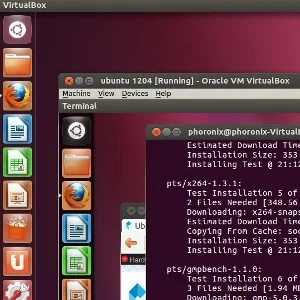QEMU 9.1 Released With AMD SEV-SNP Support & Intel IAA Acceleration During VM Migrations

QEMU 9.1 brings many changes across the board but some of the standout new features include:
- QEMU 9.1 with its x86 code now supports new CPU models of Intel Icelake-Server-v7, SapphireRapids-v3, and SierraForest.
- QEMU 9.1 also notably supports AMD SEV-SNP with the "-object sev-snp-guest" command-line option for guest SEV-SNP VM handling in conjunction with the latest Linux kernel code on AMD EPYC processors. This is wonderful for getting the AMD SEV-SNP confidential computing pieces finally in place upstream.
- Compression offload support with QEMU 9.1 using the Intel Query Processing Library (QPL) for acceleration on Intel Xeon Sapphire Rapids and later with the In-Memory Analytics Accelerator (IAA). In addition to this Intel QPL compression acceleration during VM migration there is also now support for User-Space Accelerator Development Kit (UADK) acceleration as another alternative.
- QEMU 9.1 on Arm can emulate new CPU architecture features such as NMI, CSV2_3, ETS2, Spec_FPACC, WFxT, and Debugv8p8. There are also improvements to various Arm board models and other architecture enhancements.
- LoongArch with QEMU 9.1 now allows booting EFI kernels directly. LoongArch also now enjoys KVM guest debug, TPM support by default, and other improvements.
- RISC-V on QEMU 9.1 now supports various new extensions, 64-bit addresses for initrd handling, and many other fixes.
Downloads and more details on all of the QEMU 9.1 feature changes can be found via QEMU.org.
Add A Comment

